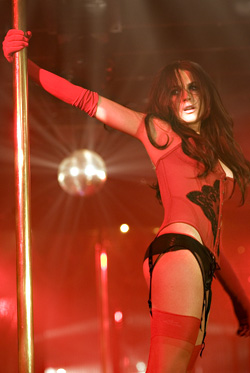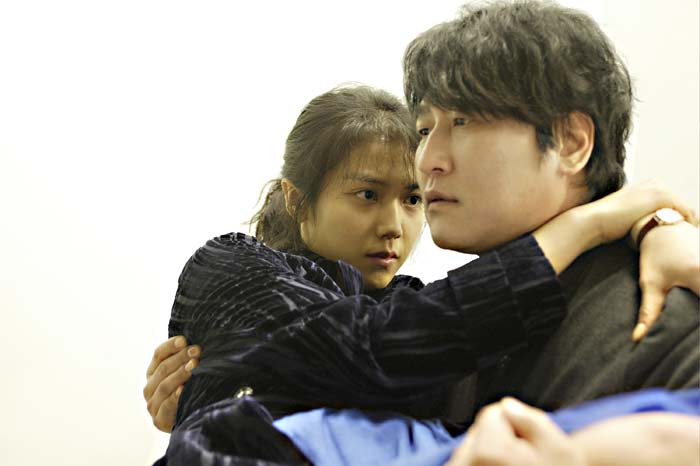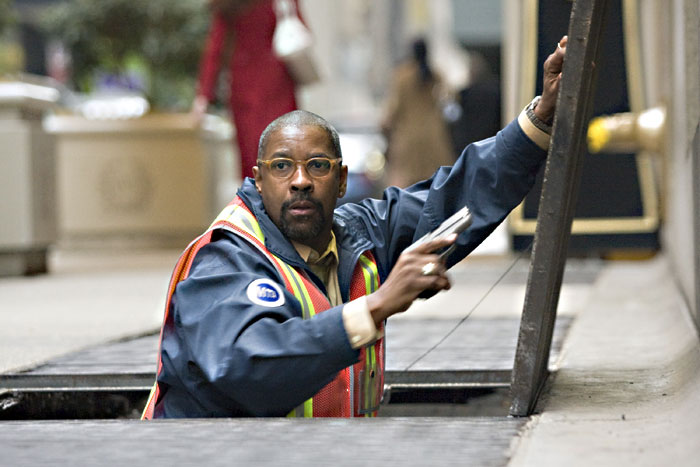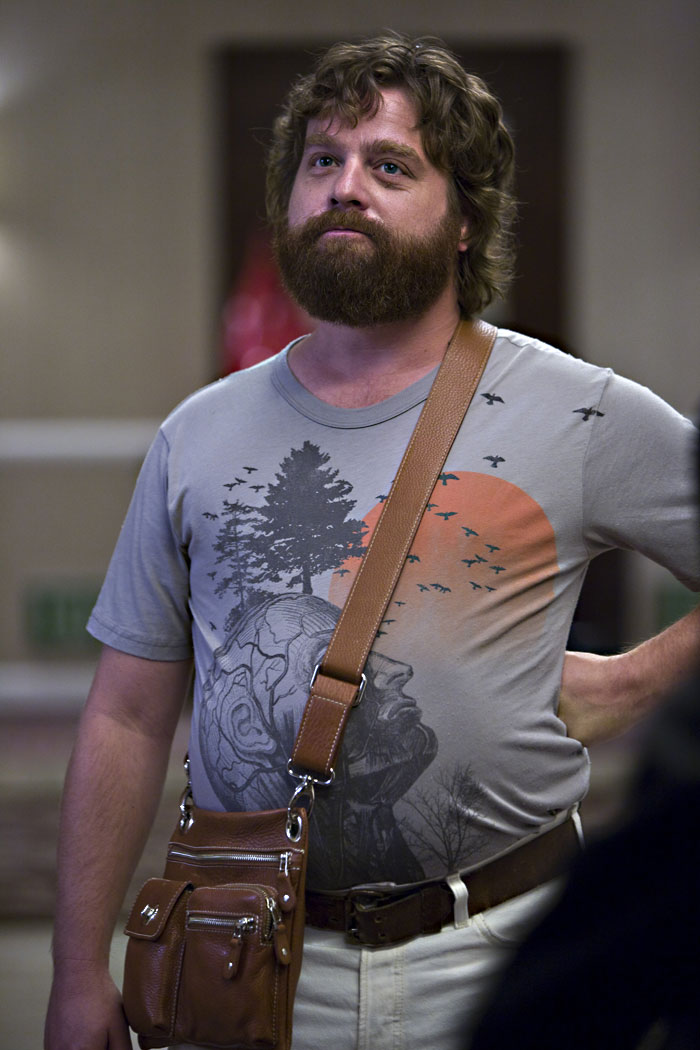How tough is it for a movie to find its audience, above the din of blockbuster marketing and beyond the clogged distribution pipeline? Tsai Ming-liang, the Taiwanese/Malaysian director regarded as one of the world’s greats, had two films in U.S. theaters this year, The Wayward Cloud and I Don’t Want to Sleep Alone. The latter did play SIFF Cinema in July, but few cities were as lucky. From minor hits to complete obscurities, these 10 films from 2007—and others—deserved more attention than they got, either from audiences, distributors, or critics.
End of the Line Good unreleased horror movies are not exactly in overstock, so why has Maurice Devereaux’s hair-raising subterranean shocker taken so long to surface from the festival circuit? Maybe it’s because this sick satiric tale—in which religious zealots conduct their own Rapture with cross-shaped daggers on a stalled subway—pushes sensitive buttons about fundamentalist hysteria. Then again, maybe it’s because the movie raises the even more subversive possibility that the zealots are right. Either way, this is scary as hell and impressively unrelenting—starting with a strong candidate for the best jump-fright since Michael Myers bolted upright.
The Hills Have Eyes 2 It starts in a mock-up Kandahar with a war room staffed by stuffed dummies; it ends with a besieged peacenik wisely chucking his pacifist ideals in the face of Pure Fucking Evil. In between, outmanned U.S. troops reap the fruit of decades-old government policy—here, desert nuclear testing—in the form of implacable fanatics with the home-field advantage of tunnels and caves. In a year when Hollywood turned Iraq war hand-wringing into a virtual subgenre, no reputable movie caught the country’s ideological confusion so fully; its booby-trapped shallow focus seemed shorthand for the perils of a blinkered worldview. This should be playing somewhere near Los Alamos, at a drive-in with No End in Sight.
I Know Who Killed Me Not even Lindsay Lohan’s sojourn in the tabloids stirred up much interest in this marvel of trashy delirium. A pity, too: Chris Sivertson’s mystifying mood piece about a demure honor student who morphs into a mutilated stripper was sold as torture porn, but it’s closer in spirit to a glue-huffing remake of Kieslowski’s The Double Life of Veronique. As psychodrama, it was even more potent. Try finding a more eerie metaphor for a child star’s uneasy transition to adulthood than pole-dancer Lohan facing her Disney-princess self packed away in a casket.
Joshua You can’t blame new parents who didn’t want to waste their one date night a year on a movie that acutely captures the sleep-deprived panic of the other 364 days. For the stouthearted, though, George Ratliff’s masterfully unnerving thriller about a blank-faced tyke (Jacob Kogan) whose mom and dad suspect him of psychological warfare against their new baby creates a mood of imminent doom that anyone with suspiciously quiet tots will recognize. The leads enact the pressures of child-rearing so empathetically—mom Vera Farmiga in exhausted near-madness, dad Sam Rockwell in sex-starved, stuck-in-the-middle befuddlement—that the cumulative chills leave your teeth chattering. It’s perhaps better watched at home, with your kids locked safely in their rooms.
Lake of Fire The year’s most criminally underseen movie, Tony Kaye’s landmark abortion documentary made a crucial commercial miscalculation: Because it presented both pro-choice and pro-life positions fairly, neither side wanted to see it. A documentary is supposed to reinforce your prejudices, stupid, not challenge them. For anyone brave enough to consider the issue beyond sloganeering and name-calling, though, this staggering doc has the power to tip the undecided either way. And kudos to Kaye for shooting on celluloid—his graphic film may be hell to watch, but never to look at.
Manufactured Landscapes Despite the endorsement of Al Gore, Jennifer Baichwal’s visually stunning documentary was snubbed by the same environmental groups who rallied around An Inconvenient Truth—in part because the inconvenient truth of Baichwal’s film is that the industrial ravaging of the planet, as shown in Edward Burtynsky’s macroscopic photographs, has an undeniable (if horrifying) grandeur. Can the environment’s loss be cinema’s gain? Following Burtynsky through China, from one hypnotic science-fiction rubblescape to another, Baichwal challenges us to say no—or at least not to succumb to our sense of awe.
Music and Lyrics Maybe the year’s most pleasant surprise: an intelligent, genuinely amusing romantic comedy, scaled to match the modest ambitions of its hero, “happy has-been” Hugh Grant. Paired with Drew Barrymore, whose tremulous vulnerability has never been more appealing, Grant gave his least shticky and most winning performance in years as a Reagan-era pop idol who gets a shot at a mild artistic triumph after years on the berry-farm circuit. But he has no shame about his limited success, and the same can be said for writer-director Marc Lawrence, who kids ’80s nostalgia without meanness or condescension. The cherry on the sundae: delicious pop-novelty pastiches by Andrew Blakemore, Adam Schlesinger, and others, including the deathless “Pop! Goes My Heart.”
Paprika Director Satochi Kon’s anime fantasy—a mind-blower on a Videodrome/2001 scale of sensory and intellectual bombardment—exemplifies more than any digital-animation feature this year the freedom of working in a medium with no physical restraints. With his sleep-troubled film-noir cop prowling the subconscious of a near-future Tokyo, Kon explores the relationship of dream logic to the visual grammar of movies and plays eye-boggling tricks with perspective, distending bodies and boundaries and looping his nightmare scenarios. And yet at the movie’s heart is a wistful, romantic affirmation of the need for inviolate space where our inner selves can soar.
Private Fears in Public Places (Coeurs) A fake movie snowfall out of Josef von Sternberg’s dreams blankets this gorgeous ensemble comedy-drama about the difficulty of forging new loves late in life. Directed by Alain Resnais with a formal rigor and brisk elegance that should shame filmmakers five decades younger, its combination of golden-age gloss and transparently theatrical design makes it more accessible than Resnais’ form-breaking early films of the nouvelle vague era. Even so, it failed to reach the audiences that have eagerly embraced, say, Patrice Leconte’s diverting trifles. Too bad: On TV the beauty of Eric Gautier’s cinematography will be diminished, though not extinguished.
Urim and Thummim This memorably odd doc by Dub Cornett and Dancing Outlaw director Jacob Young relates the story of three men who claim to have found an Old Testament portal on the 99-cent sale rack at a Goodwill superstore in Tennessee. At one of its film festival screenings, no less an admirer than Werner Herzog reportedly dismissed its critics as “retarded.” Will you ever see it? The movie itself provides an answer: Stranger things have happened.








